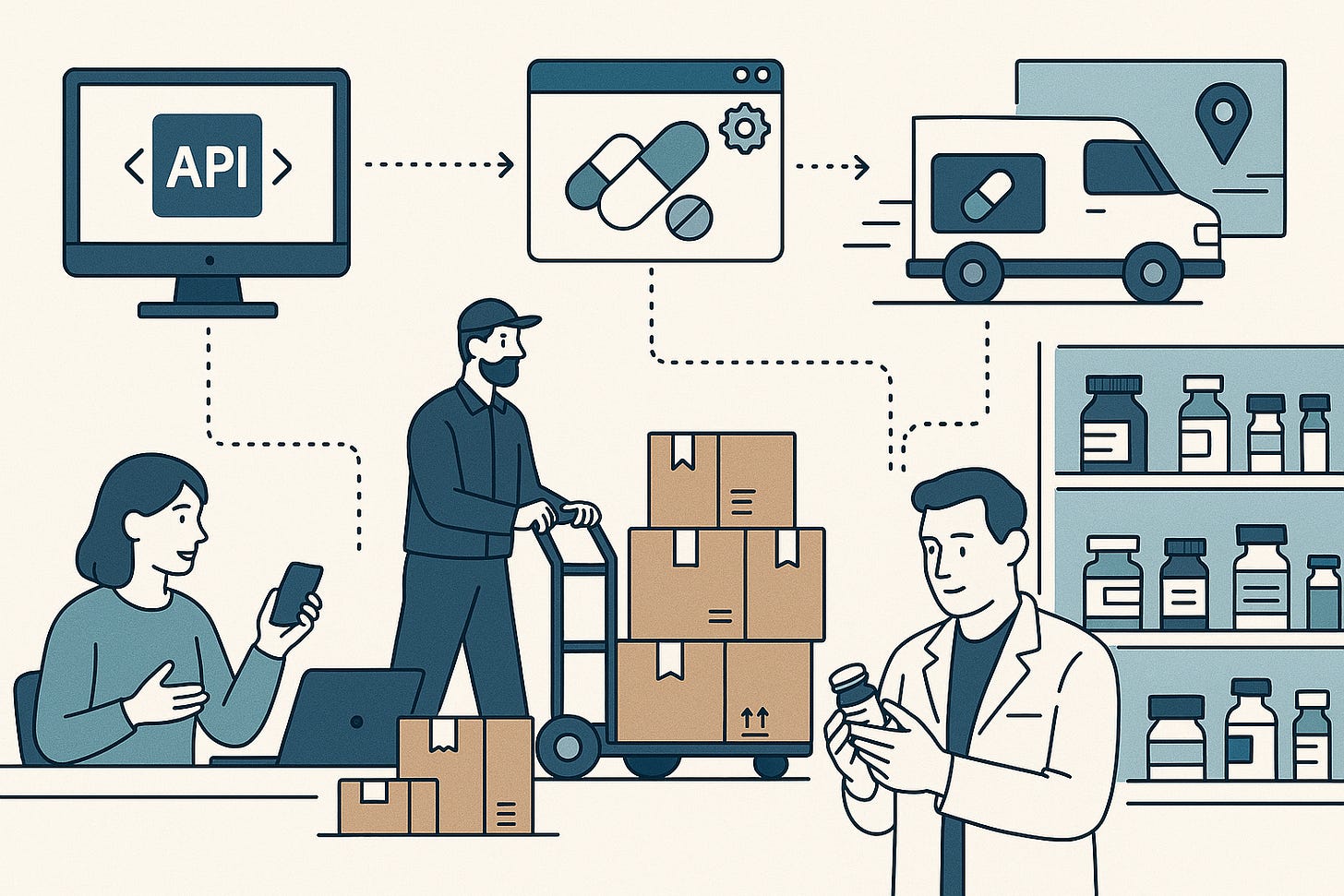How API-Driven Logistics Are Reshaping Pharmaceutical Fulfillment for Health-Tech Startups
APIs Transform Pharma Fulfillment for Startups
As health-tech continues to transform how we access, prescribe, and consume medications, the logistics powering this ecosystem are also evolving rapidly. For startups in telemedicine, digital therapeutics, and e-pharmacy, medicine fulfillment is about more than just delivery—it’s about real-time orchestration, compliance, and user experience. Choosing partners like the best medicine courier service in Wayanad is not merely a convenience but a strategic infrastructure decision.
From API-based order dispatching to cold-chain integrity and automated regulatory compliance, the logistics layer has become a critical enabler for operational scale and patient trust. This post explores how modern courier technologies are being adopted by tech-driven healthcare businesses, focusing on automation, data intelligence, and seamless integration.
1. Why Fulfillment Infrastructure Matters in the Health-Tech Stack
Health-tech businesses have traditionally focused on the user-facing layer—consultations, prescriptions, and wellness dashboards. However, if medication does not reach the patient quickly, safely, and compliantly, the entire experience suffers.
Fulfillment is now an extension of product design. For example:
A telemedicine app may promise 24-hour prescription fulfillment but fail if the courier cannot validate patient ID or maintain cold-storage conditions.
A D2C gut health startup could see high returns due to poor packaging during transit.
This is where API-led logistics, such as those offered by the best medicine courier service in Wayanad, bridge the gap, making fulfillment as programmable and reliable as the frontend application.
2. Leveraging Courier APIs for Seamless Dispatch and Tracking
Courier APIs are revolutionizing how pharmacies and health-tech apps fulfill orders. Instead of manual bookings, businesses can integrate directly with a courier’s API, enabling:
Auto-order dispatch: Prescriptions trigger courier bookings automatically.
Label and manifest creation: Packaging details and legal declarations are generated instantly.
Real-time tracking via webhooks: Customers receive notifications based on actual rider movement.
This system reduces human error, boosts operational speed, and enhances the patient experience. It also enables health-tech platforms to scale nationally or globally without building their own delivery infrastructure. Early integration with capable delivery providers—like those in Wayanad—helps startups build trust by ensuring reliable delivery every time.
3. Automating Compliance for Regulated and Sensitive Medicines
Navigating the regulatory framework is one of the most technically challenging aspects of medicine fulfillment. Whether handling Schedule H drugs in India or exporting herbal formulations, documentation, identity verification, and temperature maintenance are essential.
Smart courier platforms now integrate:
Document verification modules to cross-check prescriptions or licenses
Temperature and humidity sensors that trigger alerts if thresholds are breached
Digital audit trails for compliance with regional and international pharmaceutical laws
These features, accessible via courier APIs, allow compliance to be embedded in backend processes rather than managed manually. This is a significant advantage for digital pharmacies and supplement companies aiming to scale while minimizing legal risks.
4. Making Fulfillment Data Actionable with Analytics
Every shipment generates valuable data—delivery times, failure rates, packaging damage, and prescription match rates. Courier systems with analytics APIs enable health-tech teams to:
Optimize shipping windows for higher delivery success
Predict delays using geographic or seasonal patterns
Track courier performance by route or SKU
Measure customer retention linked to fulfillment satisfaction
This data loop informs logistics, product development, marketing, and support. For example, if re-orders spike when deliveries occur within 48 hours, a company can prioritize logistics investment in that area. Courier partners that surface actionable data empower early-stage companies to make strategic decisions grounded in fulfillment insights.
Conclusion
Modern health-tech companies cannot afford to treat logistics as an afterthought. From API-driven automation and temperature-controlled delivery to real-time compliance and actionable insights, logistics is now integral to the product experience.
Choosing the right courier partner—such as the best medicine courier service in Wayanad—goes beyond speed. It enables your tech stack to interact directly with the physical world, delivering not just medicine but also trust, precision, and care.
Looking ahead, predictive logistics powered by AI, autonomous last-mile delivery, and drone-based distribution for remote areas are on the horizon2. For today’s health-tech leaders, investing in advanced logistics is a step toward future-readiness and a superior patient journey from click to care.



